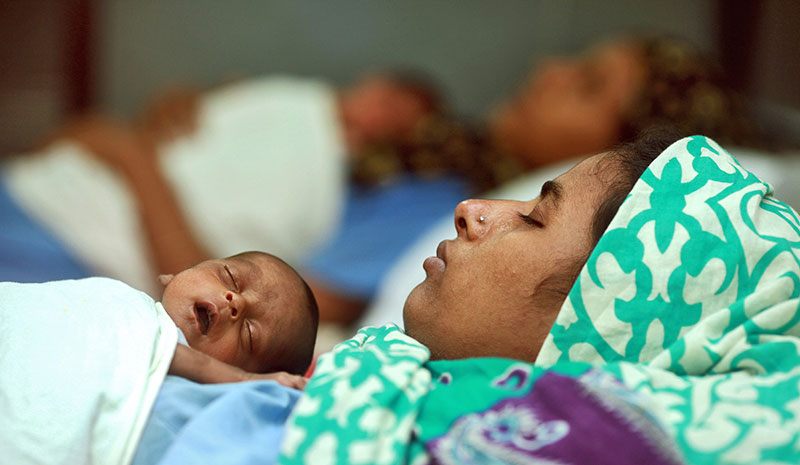For many women, giving birth is an astounding experience. However, for those in developing countries giving birth can also bring death or cause lifelong ill-health or morbidity due to unsafe conditions without proper medical attention. Globally, the true burden of maternal morbidity is unknown, however, it is estimated that for every maternal death, 20 to 30 other women suffer from acute or chronic morbidity.
Obstetric fistula is one such chronic debilitating condition for women. It is a hole in the birth canal connecting to the urinary passage and or rectum, caused by prolonged and difficult labour. Women with obstetric fistula constantly leak urine or faeces or both. Due to their condition, they often face social embarrassment, insults and alienation, even from their own family.
The United Nations declared 23 May as the International Day to End Obstetric Fistula to significantly raise awareness and intensify actions towards ending obstetric fistula.
Prevalence of obstetric fistula in Bangladesh: A national estimation
In Bangladesh, there are limited studies available on the number of women suffering from obstetric fistula. In a 2003 cross-sectional study, 1.69 per 1,000 ever-married Bangladeshi women reported having obstetric fistula. This study gave a national estimate of 71,000 self-reported obstetric fistula cases. However, self-reported studies tend to over-report obstetric fistula, the correct diagnosis requires clinical examination which was not done in this study.

In 2016, the National Institute of Population Research and Training (NIPORT) led Bangladesh Maternal Mortality and Health Care Survey (BMMS 2016) offering an excellent opportunity to provide national estimates of obstetric fistula. However, clinical examination of a nationally representative survey with over 300,000 households was not feasible.
Therefore, icddr,b in collaboration with MEASURE Evaluation, Fistula Care Plus project and MaMoni HSS project conducted a complementary study – Maternal Morbidity Validation Study that provided an estimated value through self-reporting verified through clinical examination which was later applied in the BMMS 2016 to get the national estimate of obstetric fistula.
This collaborative effort, funded by the Government of Bangladesh, United States Agency for International Development (USAID) and Department for International Development (DfID), is the first population based study to measure the national burden of obstetric fistula based on adjustments for clinical confirmation of cases in Bangladesh.
According to this estimation, the national prevalence for obstetric fistula in Bangladesh is 0.42 per 1,000 women with at least one birth. The study also estimated that approximately 19,755 women live with obstetric fistula and two-thirds of them are between age 15 and 49, which is lower than the previous estimation of self-reported cases.
Moreover, the estimation shows that although Bangladesh has an obstetric fistula program, but with the current surgery rate at around 300 cases annually, it would take almost 60 years just to treat the women who are already living with obstetric fistula.
“The number of skilled obstetric fistula surgeons in Bangladesh is limited. Moreover, this surgery needs to be followed by an extended stay at a health facility, so women are discouraged from seeking care. Therefore, innovative solutions to increase and improve access and use of services are required.” states Dr Quamrun Nahar, Acting Senior Director of icddr,b and a key member of the research team.
She further adds, “Women living with obstetric fistula face great social stigma, so effective counselling of clients and their families is essential for proper rehabilitation and reintegration in the family and society.”
“The cost and challenge of identification, treatment, and management of the current caseload of obstetric fistula is daunting for Bangladesh’s health system” acknowledges Dr Shams El Arifeen, senior director of icddr,b and another key member of the research team.
He suggests that efforts to combat this condition should focus on prevention, to limit the number of new cases. “Prevention can begin with building public awareness that obstetric fistula is preventable and treatable and should not be an acceptable consequence associated with childbirth.”
“Bangladesh has a national strategy for Fistula, but it needs a comprehensive plan of action for the prevention and treatment of this condition,” adds Dr Arifeen.
